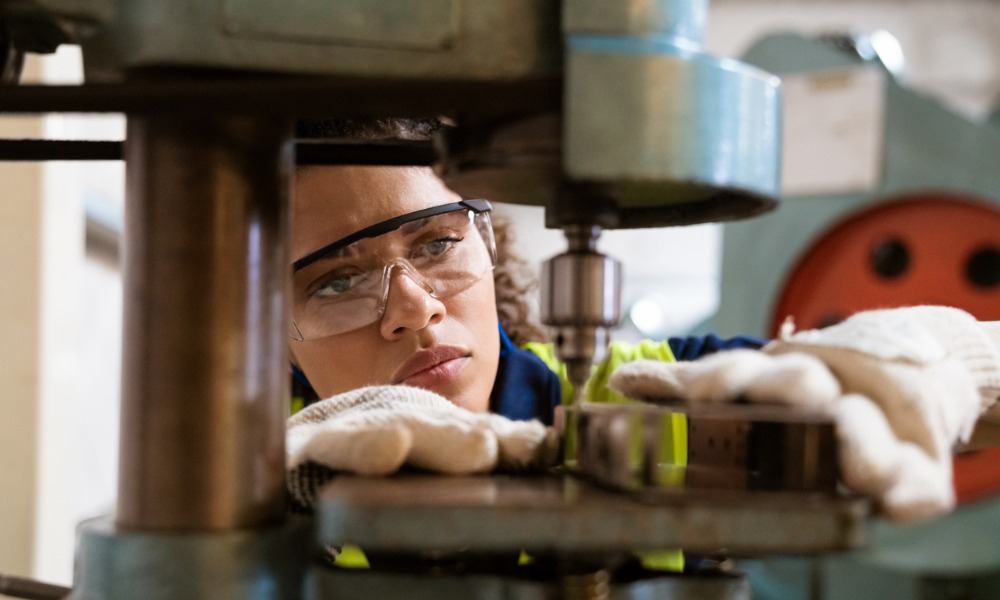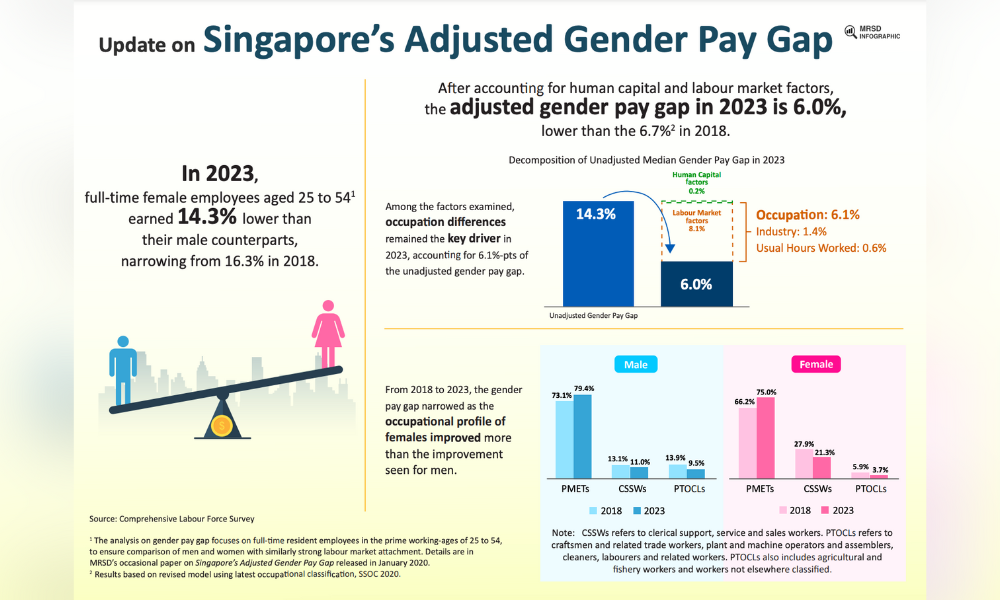
Declining pay comes amid improving occupational profile of women: report

Singapore's unadjusted gender pay gap went down to 14.3% in 2023, according to updated figures released by the Ministry of Manpower (MOM) this month.
This is a decline from 16.3% in 2018, said the ministry.
The unadjusted gender pay gap compares the median pay of working women between ages 25 and 54 relative to that of men, according to a joint study from MOM and the National University of Singapore (NUS).
This is "often used for international comparisons of the extent of gender inequality across countries," the report read.
The adjusted gender pay gap, which accounts for human capital and labour market factors, is at six per cent, down from the 6.7% in 2018.
The adjusted pay gap subtracts the human capital (0.2%) and labour market (8.1%) factors from the unadjusted figure.
"This is the unexplained component from the decomposition, which remains between men and women employees after into account gender differences in the available measures for human capital and labour market factors," the MOM and NUS joint study previously said.
In 2023, occupation differences remained the key driver in of the gender pay gap, accounting for 6.1% of the unadjusted gap in Singapore, according to MOM.
It narrowed as the occupational profile of women improved more than the improvement seen for men, particularly in the Professionals, Managers, Executives, and Technicians (PMET) category.
The percentage of women working in PMET went up from 66.2% in 2018 to 75% in 2023, a bigger growth than the 73.1% to 79.4% for men.

Source: Ministry of Manpower
In Singapore, 50% of women believe that it would take 50 years before the gender pay gap across the country would be resolved.
This comes amid high reluctance among women to ask for pay rise or promotion, citing fears of negative consequences if they request for it.
Currently, more than eight in 10 employers in Singapore said they invested on DEI initiatives over the past year, with another 55% saying they will increase this investment in 2024.
Pannie Sia, general manager, Workday, ASEAN, previously said it would be important for organisations to start taking a "more mature and robust approach to their DEI efforts."